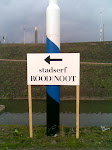In “The Myth of Sisyphus”, Albert Camus defines the notion of absurdity as follows:
“A world that can be explained by reasoning, however faulty, is a familiar world. But in a universe that is suddenly deprived of illusions of light, man feels a stranger. His is an irremediable exile, because he is deprived of memories of a lost homeland as much as he lacks the hope of a promised land to come. This divorce between man and his life, the actor and his setting, truly constitutes the feeling of Absurdity.”[2]
_
In an era of wars and massacres, when death is most visible, according to Camus, “life” lost all its meaning. Hence man should not seek escape in suicide.[3] It is not surprising that in the plays of The Theatre of the Absurd, characters, despite their hopelessness and desperateness, struggle and resist. This struggle, which might be delineated as the endeavor to exist, originates within the feeling of what Camus names Absurdity. Camus defines the feeling of absurdity as a constitution which requires further interpretation: what he defines is the feeling of Absurdity, not the absurdity or the absurd itself. Camus, in intending to define the term, is unable to reach the core meaning of the absurd since there doesn’t exist one.
lees hele artikel

.jpg)

